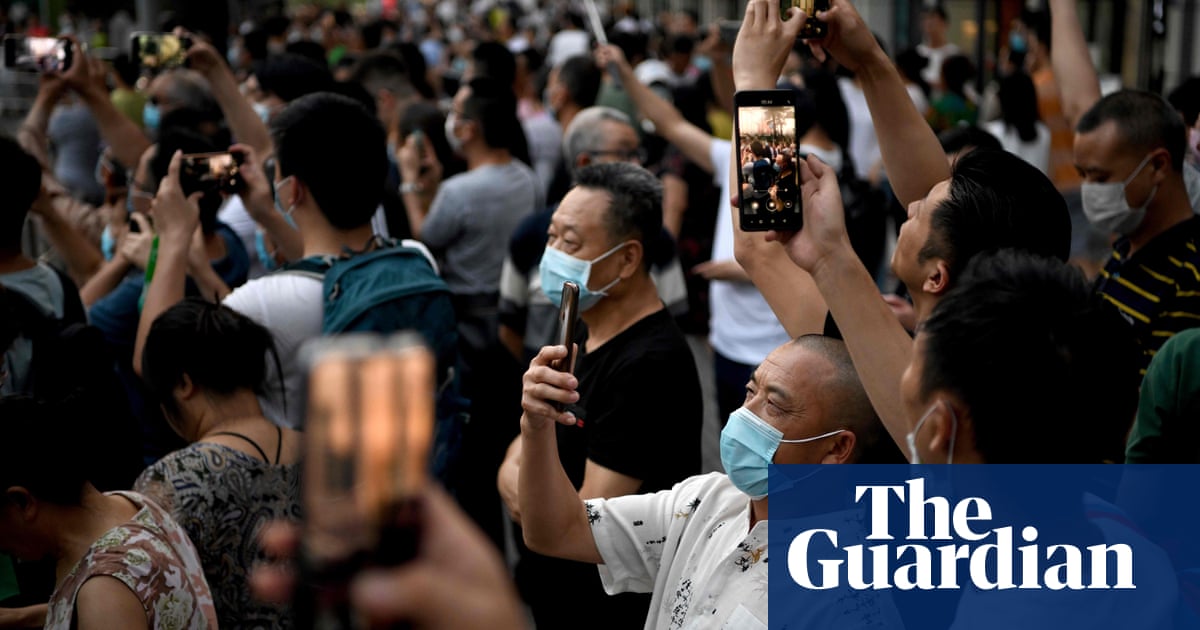
Local residents in Chengdu flocked to the U.S. consulate on Sunday, taking selfies and waving Chinese flags, as officials prepared to remove their official badge a few days after Washington and Beijing ordered the other to shut down a diplomatic mission.
On Sunday, a steady stream of spectators in the city of 16.5 million people passed through the consulate, many taking photos. On Monday morning, the flag of the United States was lowered outside the diplomatic outpost.
Tensions between the two countries over trade and the coronavirus increased another level last week when the United States on Tuesday ordered the closure of the Chinese consulate in Texas, saying it was a hub for espionage and theft of intellectual property.
Large numbers of police prevented people in Chengdu from getting too close and quickly stopped any provocative gestures or obvious signs of joy when the Americans left.
A passerby launched into a nationalist chant and was quickly silenced, according to a video posted on social media. AFP journalists saw security confiscate a banner. However, the measures did not prevent a person from dragging a huge Chinese flag from his balcony and shouting “China” on the street.
Boos also increased when a tinted-glass bus left the building on Sunday.
An attempt to remove the main board from the wall of the closed consulate with a crowbar, hammer, and chisel failed.
Beijing had not given a date for the closure of the consulate, but on Saturday most of the insignia were stripped from the building.

The United States has an embassy in Beijing and five consulates in mainland China, including Chengdu, plus one in Hong Kong.
The Chengdu consulate covered the southwest of the country, including, in particular, Tibet. Many Tibetans accuse the central government of religious repression and erode their culture.
The closure of the consulate, the Chinese Foreign Ministry said on Friday, was a “legitimate and necessary response to the unreasonable steps of the United States.”
“Some of the staff at the US consulate in Chengdu were involved in activities beyond their capacity, interfering in China’s internal affairs and jeopardizing China’s security and interests,” said spokesman Wang Wenbin.

In 2013, China demanded an explanation from the US after press reports indicated that a top-secret map leaked by fugitive intelligence analyst Edward Snowden showed surveillance facilities at US embassies and consulates. Around the world, including in Chengdu.
Chinese nationalists had called for a more strident response from the authorities, such as the closure of the US consulate in Hong Kong, a move that would further escalate tensions. The semi-autonomous city saw major pro-democracy protests last year, and Beijing has frequently said it suspects the United States is behind the riots.
United States Secretary of State Mike Pompeo said Thursday that the Chinese consulate in Houston was a “hub for espionage and theft of intellectual property.” Houston, the fourth largest city in the US, is a major global center for medical and biological research.
Washington officials said attempts to steal secrets in those fields had become too numerous to ignore.
.